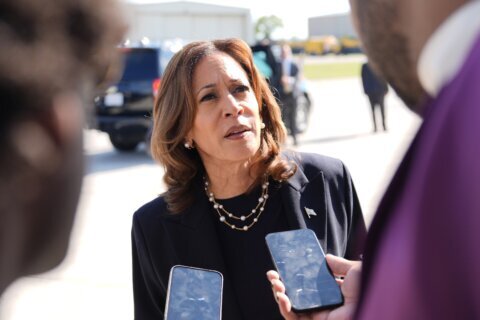With her extensive background in education, Kiran Bhai is the person friends and family often turn to for help when it comes to choosing a school for their child.
Bhai has worked in both public and charter schools and is the program director for schools and parenting at Making Caring Common, a project based at the Harvard University’s Graduate School of Education that works with educators and families to raise caring and ethical children.
She knows anxious parents are looking for a magic answer, but she doesn’t have one. Instead, she suggests they start by asking themselves some important questions in order to figure out their own “personal equation” for the kind of school that will meet their child’s needs and goals.
Does a child struggle to make friends? Maybe a smaller school is the way to go. Does a child require extra learning support? You might want to look at schools designed for students with learning disabilities. Do parents want a school with lots of options for sports and extracurriculars? Do they want to be within walking distance of school?
The list goes on and on.
“It’s personal,” Bhai says. “You want to know the goals you have. It’s so different for every family and every child.”
Choosing a school for your child is one of the most personal decisions a parent can make, but that doesn’t mean you have to go it alone. Bhai and other experts suggest considering these factors when choosing a school.
Types of Schools
Determining what’s most important for your child and your family will help determine the type of school you want your child to attend. While it might seem like there’s only a choice between public and private schools, there are lots of other options to consider. Maybe you want to send your child to a parochial school. Maybe a microschool would work better for your family. Or you might be curious about homeschooling.
Families may also have a choice when it comes to public school. Many areas offer public charter and magnet schools in addition to traditional public schools. Then there’s the matter of instruction: Some charters and especially magnets specialize in a particular area of focus, like STEM or the performing arts. And there are private and public options for alternative educational approaches like Montessori and Waldorf schools.
[Schools for Gifted Students: What to Know]
While there are many factors when deciding on a school, the three most important drivers are typically location, budget and, the biggest factor of all, your child’s unique needs. Bhai says some of the biggest concerns she hears from parents in that category are related to school safety, class size and availability of student support.
Even after taking into account all these considerations, the decision may not be easy.
“You’re taking a leap when you have the choice to make a choice,” Bhai says. “You’ll never have all the information but you do your best.”
Public vs. Private
The debate over public and private schools seems to never end, but perhaps nowhere is it more contentious than New York City. And Joyce Szuflita has had a unique vantage point.
As a school consultant in Brooklyn, Szuflita has spent nearly 15 years advising thousands of anxious parents in the city. Her role began after diving headlong into the school search process for her twin girls in the “very complicated environment” of New York City.
While some clients come to her intent on either public or private, lots come to her just plain confused. Some are nervous about sending their children to a big city public school in a place they didn’t grow up. Others feel pressure from colleagues and friends that they have to send their kids to private school.
“I don’t have hard and fast recommendations,” Szuflita says. She tells parents to look for value. “If that means paying for it, that’s great, and if you don’t have to pay for it, that’s great.”
Szuflita always starts by asking parents where they went to school. If they had a good experience, many want to replicate it for their children. If they had a bad one, many are looking for the opposite.
Choosing private or public also doesn’t mean a lifelong decision. Some families might choose public school for early grades and private for high school, or the reverse. Some might start with private, go to public for middle school, and then return to private for high school.
Many parents interested in private school often choose K-12 schools so they don’t have to go through the admission process more than once. But Sharon Decker, co-founder of The Admissions Plan, a private school admissions consulting firm, says she often encourages them to consider K-8 schools.
[READ: Applying to Private Schools: A Guide for K-12 Families.]
Decker says it’s often easier — although still not easy — to be accepted into those schools, but more importantly, K-8 schools often have more resources for grades 6-8 since resources aren’t being funneled off to high school.
“For some kids it can be a place to flourish,” Decker says. “Sixth, seventh and eighth graders can really be leaders of the school. Middle school can be crushing, so for the kids in middle school who have the opportunity to lead and shine and be known, it can be really valuable.”
Steps to Take When Choosing a School
Educators and admissions experts agree there are a few things parents should do when deciding on a school.
Talk to Other Parents
One of the best ways to get the inside scoop on a school is to talk with current parents.
While it’s great to talk with friends or acquaintances about their experience in schools, try to go beyond your own network. Making Caring Common suggests talking to parents outside of your circle to get a more diverse view of schools available.
[Is There a Lack of Diversity in Private Schools?]
“The diversity of the student body and staff as well is really important, because your child’s school experience is going to be a huge part in shaping their worldview,” says Bhai.
Being surrounded by people from different backgrounds also helps to develop important skills like empathy and communications. “Those skills are as valuable as strong academics to post-secondary paths,” she says.
Most schools also have a PTA or other parent organization you can reach out to, or check social media for groups associated with the school you’re interested in. And “if your child is really young, strike up conversations with parents at your local playground,” Bhai says.
Schedule a Visit
Going on a school tour is an absolute must, and often a requirement when applying to private schools. Tours paint a fuller picture than a website or brochure about the kind of education you can expect for your child.
In the early grades, there are a few things to look out for. “A lack of student-created work on the walls or work that is exactly the same” is a red flag, Szuflita says. She also recommends checking the bookshelves and seeing if they are filled with literature or textbooks and workbooks.
It gets trickier when students get into middle and high school, but there are still things to watch for.
“Look at how many middle schoolers are on their phone under the desk in the classroom,” Decker says. “If you see the majority are on phones and not interacting, that says something about class culture.”
In high school, look at class size and whether students are in large lecture halls or in small, discussion-based classrooms.
Do Research and Go Beyond Rankings
Many parents will turn to ratings, rankings and online reviews at some point in the school search. While everyone has an opinion on ratings, almost all agree that they shouldn’t be the only factor in making a decision.
“Anyone can write a review on these sites, and schools can stack the deck” by requesting positive reviews from alums and parents, Decker says.
“Ratings are one part of the puzzle,” says Jon Deane, CEO of GreatSchools, a national nonprofit that provides information and ratings on PK-12 schools. In addition to test scores, GreatSchools factors in a number of metrics, including student progress, college readiness and an equity rating that measures how well a school serves its disadvantaged students. US News’ K-8 and high school rankings consider similar factors.
The Department of Education recommends that parents consult their school district’s report card, which includes graduation rates, qualifications of teachers and student state test scores.
Bhai urges parents to look beyond just test scores to judge the quality of a school. One way is to ask districts for a school climate report, a comprehensive assessment that includes metrics like student engagement, school safety and the overall learning environment.
Even as rankings become more holistic in their approach, Deane urges parents to keep their value in perspective.
“A higher-rated school might be right for one parent and not another,” he says. “The ultimate goal is to find the right fit for themselves. We hope rankings are a part of their journey but that they take advantage of all of the information available to them.”
Trust Your Gut
After all the research and tours and discussions with other parents, choosing a school often comes down to one thing: feel. Trusting your intuition is an important part of the process.
“There’s a certain amount of alchemy and being lucky,” Szuflita says. “If you choose a school only by its status, you’ll make a huge mistake.”
Szuflita also says parents shouldn’t forget their child’s perspective.
When she was touring schools with one daughter, they visited a school where students gave a presentation. While Szuflita wasn’t blown away, when she looked at her daughter, “her eyes were glowing and she said, ‘This is it. This is where I want to go to school.'”
“And she was right. She sensed that she would fit there,” Szuflita says. “It depends on the kid, but sometimes they can have a sense.”
More from U.S. News
How to Get Private School Financial Aid
The Pros and Cons of Single-Gender Schools
How to Find the Right K-12 School for Your Child originally appeared on usnews.com







